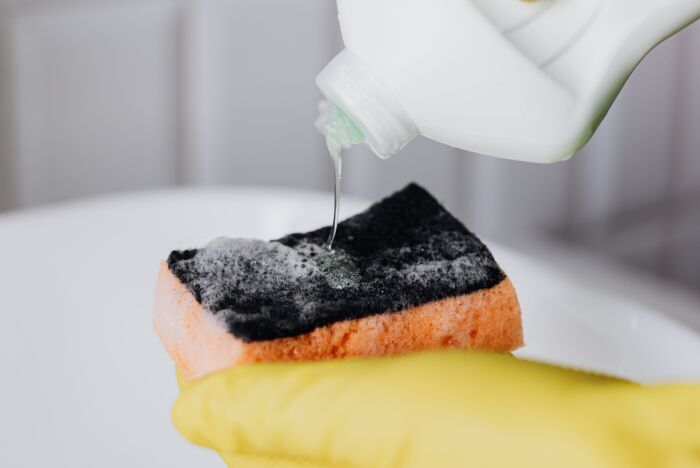
70% of the analyzed dishwashing detergents contain at least one substance that is hazardous to the environment. This is what Altroconsumo announces that it took part in the Clean project carried out by Euroconsumers (which also includes the partners DecoProteste in Portugal, Ocu in Spain and Test-Achats in Belgium), in order to promote greater consumer information on services and sustainability of household cleaners, protecting them from possible misleading communications and providing them with adequate tools of choice.
In this context, Altroconsumo and its partners, as part of their normal comparative test activity, carried out a survey on 115 dishwashing detergents, between traditional and ecological (56 detergents for dishwashers, 59 detergents for manual washing), alongside to the washing effectiveness tests also the analysis of the composition and the related environmental impact, and analyzing the presence of green declarations and certifications on the labels that often deceive consumers. First, the composition of the detergents was checked by detecting possible substances harmful to the environment.
Some of the 115 products analyzed were characterized by rather simple formulas, 8-15 different substances, while others were more complex: hand dishwashers can reach 24 ingredients, while dishwasher detergents even 35 (increasing the probability of the presence of substances harmful). About 70% of the products analyzed contained at least one environmentally hazardous ingredient (according to the Euroconsumers classification of substances considered ‘worrying’ in terms of environmental impact), which often did not even affect the performance of the detergent, such as perfume, fragrances and dyes .
But not only that, the investigation also found the presence of risky elements within the ingredients essential for the composition of the detergent such as surfactants, emulsifiers, viscosity regulators, chelating agents, anti-scaling agents, preservatives or stabilizers of whiteners or oxidants. The analysis concludes that of the dishwasher detergents examined, only 35% have a low environmental impact. But among the detergents for manual washing, the situation improves, in fact more than 1 in 2 has good or very good environmental performance.
In order to reduce the impact of these products on the planet, the dangerous substances should therefore be replaced with alternative options with the same function but less harmful to the aquatic environment, as already done by several manufacturers who make detergents only with useful ingredients. to remove dirt and limit persistent substances in the environment.
Another element that plays a very important role in this area is packaging, both from an environmental point of view and from an information point of view. Product packaging contributes to the production of large quantities of plastic and cardboard waste, moreover, they often carry misleading or untrue sustainability claims capable of misleading consumers.
The packaging of the analyzed detergents is capable of impacting the planet in two ways. First of all, many of the packages of the products included in the study are not completely filled with the detergent and therefore do not optimize the capacity space, causing unnecessary waste. Furthermore, many packaging are made with non-recyclable materials or are characterized by the presence of numerous colors on the packaging that limit the possibilities of recycling. Some brands have solved this problem by using colorless packaging and applying a removable label, an effective solution that could be adopted on a large scale.
Subsequently, claims and information on detergent packaging were analyzed, which are often presented in a misleading way. In total, 159 references to the environment were found distributed on the 115 products examined: 63 on dishwasher detergents and 96 on those for washing dishes by hand. In many cases, in fact, the references to the environmental impact have been exaggerated compared to reality. The analysis showed specifically that traditional products mostly contain environmental declarations relating to the quality of the ingredients and packaging.
In green detergents, on the other hand, there are also claims that refer to animal tests and environmental commitment in general. For example, there are detergents which specify that the surfactants used are biodegradable. However, since this is a prerogative of all detergents, it cannot be presented as a quality that makes the product greener. In others it is specified that the detergent is not tested on animals, suggesting that other detergents are when it is not possible. Furthermore, this does not mean that the rest of the elements are not harmful.
“The misinformation regarding the lack of sustainability of these products is still too much. The first step towards reducing the environmental impact is a greater awareness of consumers, still too often deceived by companies, through false statements and misleading communication dynamics. People are inclined to make more informed choices, but without the appropriate tools and the contribution of companies it is not possible. It is therefore essential to provide them with clear and understandable notions, ensuring that they can trust the environmental claims made by brands”, says Alberto Pirrone, general manager of Altroconsumo.
For this reason, Pirrone adds, “we are pleased to have joined the Clean project together with the Euroconsumers partners. What we are asking for is a greater commitment on the part of producers to the environment that allows them to make green choices in a simpler way. There are already many products capable of producing less damage to the planet thanks to the replacement of some elements that do not involve higher costs either for companies or for consumers and brands that clearly communicate the qualities of their detergents. This shows that a change is possible and above all fundamental and that through a common alliance we can make progress in the continuous struggle for the protection of the Earth”.